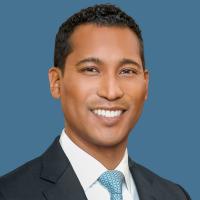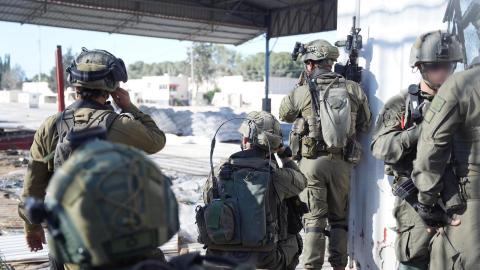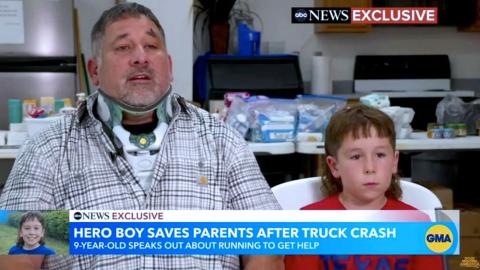Saving the Church or Airing Its Dirty Laundry? A Journalist's Quest to Redeem US Evangelicalism
WASHINGTON – As the son of a preacher, Tim Alberta spent his formative years in church.
"I did my homework there. I played games there. I met girlfriends there. I worked as a janitor there while I was going to community college for a year," Alberta recalled, describing the Michigan congregation where his father served as senior pastor for 25 years.
During college, he could not have imagined his future in journalism would one day mirror his role as a janitor — working to keep the church clean and spotless.
"I think one could look at this as airing the dirty laundry of the church—feeding ammunition to the enemies on the outside," Alberta conceded in an interview with CBN News after the release of his latest book.
"But I truly believe that the church needs accountability," he added, acknowledging his deep discomfort writing critically about an institution he referred to as his family and community.
His quest for accountability resulted in The Kingdom, the Power, and the Glory, a book in which Alberta examines what he describes as political extremism in the evangelical church.
"The purpose is twofold in shining a light into this darkness as it pertains to the evangelical movement in America. It is to, on the one hand, expose what is wrong and what is false. But it's also to illuminate what is right and what is true," he explained.
The book might not have been written if it weren't for a series of events that unfolded after his father, Richard Alberta, died of a heart attack in July 2019.
Alberta, who had grown accustomed to the rough and tumble of politics as a reporter in Washington, D.C., never expected it within the walls of his childhood family church, especially not at his father's funeral.
Rather than finding consolation and sympathy, he recounted how several parishioners voiced their disapproval of his reporting—sometimes critical of the policies of then-President Donald Trump. Some even challenged whether he was still a Christian, not because of his theology but because of a perceived political ideology.
"I was so bothered by it that when I gave the eulogy at his funeral, I issued a bit of a rebuke and said to the congregation: 'Look, what are we doing? Why in a church? Is this really appropriate?'" Alberta recalled.
Alberta documented how the message fell on deaf ears for a church elder he had known since he was a young boy. Upon returning to the family home after burying his father at the cemetery, he received a handwritten note from the church leader who also was viewed as a close family friend.
"His note said that I should be ashamed of myself; that I was part of the 'Deep State;' that I was working to undermine God's ordained leader of this country: Donald Trump. But that I could be restored. That if I would use my journalism skills to investigate the Deep State and to exonerate Donald Trump, that I would be forgiven in the eyes of God."
Instead, Alberta set out to use his journalistic training to highlight the years-long coarsening changes he had witnessed within the evangelical church.
Based on a series of interviews with a number of prominent evangelical leaders—including Ralph Reed, Robert Jeffress, Tony Perkins, Rachael Denhollander, Russell Moore, Jerry Falwell, Jr., and many others—he maintains some conservative Christians, motivated by fear, have put politics ahead of the biblical premium on spiritual development.
"I think some of their fear is understandable. The culture has moved away from some of their traditional Christian values," he told CBN News. "The country does look very different than it did 50 years ago. But I also think that when you consider that the most frequently cited command in all of scripture is 'Fear not,' we have to think about fear as the antithesis of faith," Alberta explained.
"And if we, in fact, do have our citizenship in [heaven], do we really think that God is biting his fingernails over what happens in the next election here in the United States?" he questioned.
Alberta told CBN News he felt called to write the book, despite wrestling with internal unease.
"Anytime you're going to turn the spotlight on your own tribe — your own family — and start scrutinizing the foundations of your life, in many ways that's going to be painful," he explained.
After its completion, he feels his faith has been fortified.
"Four years later, my walk with Jesus has never been stronger. I've never felt closer to him," Alberta told CBN News, crediting prayer and the support of his family and other Christian believers.
Although much of the book's focus is on his diagnosis of extremism, it also offers a more hopeful prognosis — centered, in part, on the younger generation of Christian adherents.
"I believe that even though their ideologies [and] their political inclinations are largely aligned with those of their parents. I think that they recognize the danger in confusing and conflating those identities and are really going to lead the charge in reclaiming the church," he predicted. "But they're going to do it with grace. They're going to do it with love and respect for their elders. And they're going to help facilitate a long overdue conversation."
Therein lies Alberta's main goal: to initiate a conversation among evangelicals around the notion of their true identity, which according to the Bible, is found in Christ. The other objective of his book, whose title is taken from the Lord's Prayer, is to introduce non-Christian readers to the beauty and supremacy of the person of Jesus Christ.
"If I can accomplish that in the eyes of even one reader, then this will have been a success," he said.
While some may disagree with — or even dismiss his critique — Alberta believes his work is resonating with scores of other evangelicals based on the email responses flooding his inbox.
"So many of them have said the same thing which is, effectively, our congregation in the last three, four, or five years has fractured. And it hasn't fractured around doctrine; hasn't fractured around what kind of music we play on Sunday mornings or the color of the carpet or any of these things that traditionally would divide a congregation. It's 'Did you get vaccinated?' 'Who'd you vote for?' 'What are your politics?' 'What letter is after your name?' These things are tearing churches apart," he warned.
Returning to a central theme he repeated throughout the CBN interview, he referenced eternal truths about the essence of Christianity.
"If, in fact, our identity is found in Christ; our hope is found in Christ; if our citizenship is in heaven—as we're told [in] Philippians 3:20—then we cannot allow these earthly fault lines to fracture and fragment the Bride of Christ. It's just not acceptable."




